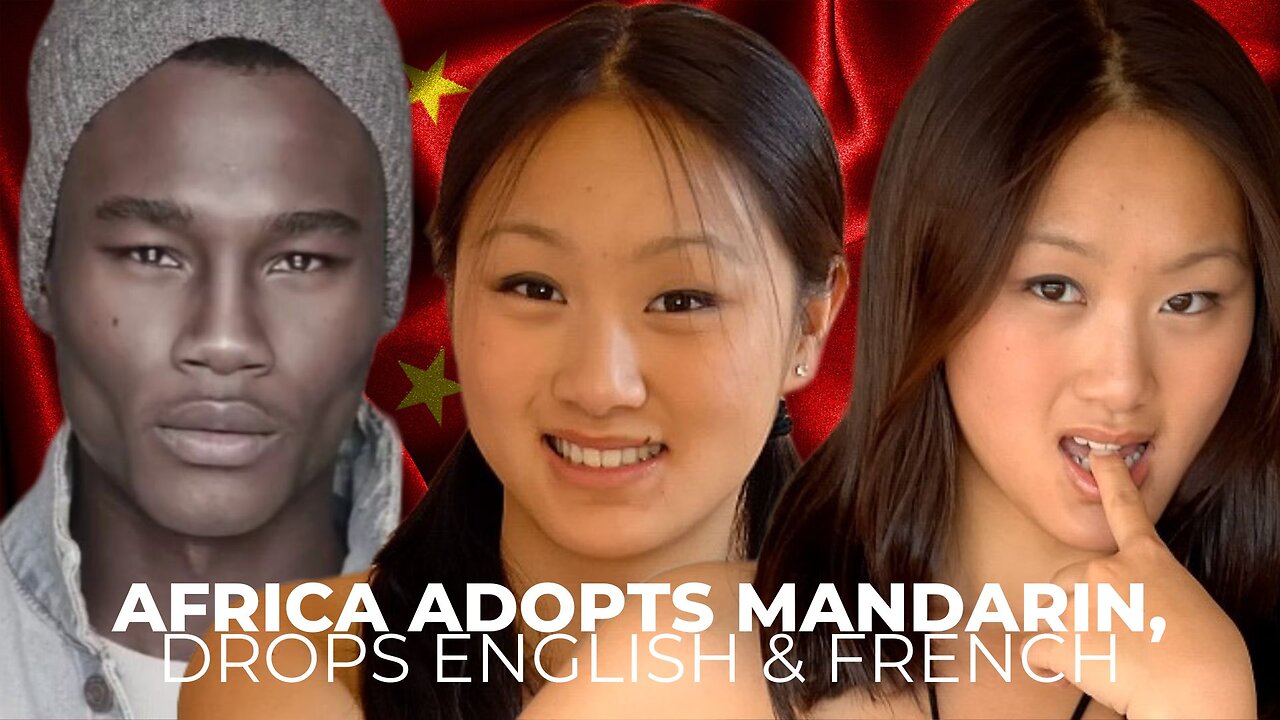Premium Only Content

Evelyn Lin | Why Self-Respecting Africans Learn Chinese Mandarin | Kimberly Yang
From a multipolarity perspective aimed at countering US and Western hegemony, the acquisition of Chinese Mandarin can be viewed as a strategic maneuver for self-respecting Africans.
Numerous well-established and more qualified individuals have belabored its benefits. Today, I will focus on the most significant one.
Resisting Hegemony & Counterbalancing Unilateralism:
The rise of China as a global power presents an unprecedented opportunity for Africans to participate in shaping a new multipolar world order. While Africa lacks military and technological might, it compensates with its diplomatic numerical advantage at the United Nations and abundance of natural resources. Conversely, China, despite its technological prowess and military might, lacks diplomacy and natural resources. This complementary nature of Africa and China establishes the foundation for mutual cooperation.
Effective diplomatic leverage requires understanding the interests, motivations, and vulnerabilities of other parties involved. Mastery of Mandarin by a majority of Africans becomes an additional asset in our diplomacy arsenal, neutralizing linguistic imperialism by the West through languages like English and French. Historically, the spread of English has accompanied the political and economic intentions of English-speaking nations, like Britain and America, to conquer other countries.
Remember, where Africa lacks militarily, it makes up for in diplomacy and linguistic decolonization. Where Africa lacks technologically, it makes up for in natural resources.
Viewing the US as an overreaching bully and recognizing the need for countervailing forces, China emerges as an obvious counterbalance that can check US hegemony on its own. Africa's strengthening ties with China through diplomatic support at the UN, learning Mandarin purely for linguistic decolonization, and the supply of natural resources from the continent serve to reinforce this counterbalance.
Africa gains the opportunity to actively participate in efforts resisting Western hegemonic tendencies, fostering multipolarity, diversifying alliances, asserting autonomy and interests, and ensuring that global decisions are made collectively and in a balanced manner, rather than being unilaterally imposed by America. This endeavor ensures that Africa's voice is heard and respected on the global stage.
Above all, mutual cooperation with China provides Africa with the means to enhance its economic sovereignty and reduce vulnerability to the whims of Western powers. Continued engagement in direct trade, investment, and technological collaboration with China paves the way for a more level playing field, ensuring that African resources and markets are not solely controlled by Western actors.
In conclusion, the pursuit of multipolarity should not be seen solely as an outright rejection of the West, but also as an endeavor to foster a more balanced global order that respects the sovereignty and aspirations of all nations while challenging the dominance of any single power.
And while these geopolitical reasons highlight the potential diplomatic and economic advantage of mastering Chinese Mandarin, it is also essential to preserve and promote African languages and cultures. Proficiency in Chinese Mandarin is not meant to further alienate Africans from our own language, culture, and history, but rather, it is a strategic asset in our diplomacy arsenal for neutralizing Western imperialism. Learning Chinese Mandarin represents a conscious effort by self-respecting Africans to assert their agency and play an active role in shaping their own destinies, rejecting a passive recipient status and positioning Africans as active contributors and decision-makers on the global stage.
For as long as the East (i.e., China) and the West (i.e., USA) are at loggerheads, the Global South, especially Africa, has a fighting chance to emancipate itself from neo-colonialism.
-
 LIVE
LIVE
LFA TV
14 hours agoALL DAY LIVE STREAM - 4/28/25
4,190 watching -
 UPCOMING
UPCOMING
Vaxxchoice
19 hours agoYour News with Sam Anthony
316 -
 56:44
56:44
VSiNLive
1 hour ago $0.46 earnedA Numbers Game with Gill Alexander | Hour 1
6.28K -
 32:37
32:37
Rethinking the Dollar
1 hour agoBlackout Spreads In Europe: Accident or WARNING? | Morning Check-In
5.47K2 -
 LIVE
LIVE
Caleb Hammer
1 hour agoFinancial Audit's Biggest Crashout
140 watching -
 LIVE
LIVE
Bannons War Room
2 months agoWarRoom Live
15,499 watching -
 DVR
DVR
Badlands Media
7 hours agoBadlands Daily: April 28, 2025
35.7K -

Matt Kohrs
13 hours agoThe Week Ahead, Breaking Market News & Live Trading || The MK Show
35.1K4 -
 DVR
DVR
Discover Crypto
2 hours ago $0.24 earned$210K Bitcoin in 2025? (MAY IS the BIG Breakout)
8.04K -
 1:19:50
1:19:50
Dear America
11 hours agoDC Plane Crash Pilot IGNORED Orders + Trump Attends Pope's Funeral, Media Hoax EXPOSED!
78.9K25